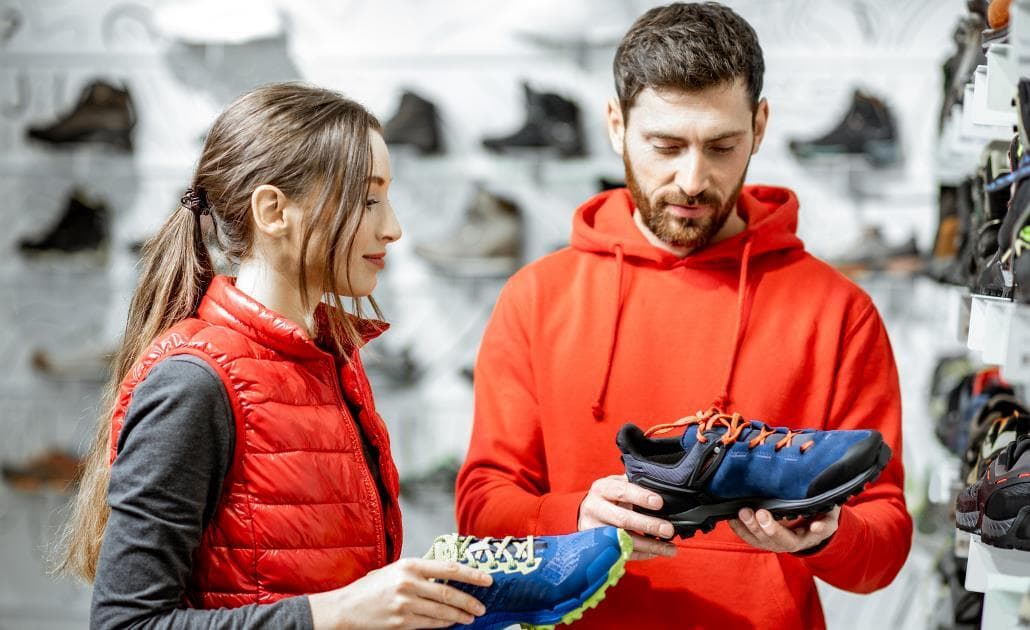
Veterinary technicians are the unsung heroes of animal healthcare, juggling a variety of tasks that require them to be on their feet for extended periods. Whether they're assisting veterinarians in surgeries, administering medications, or comforting animals, their work demands footwear that can handle the challenges of their dynamic environment.
In this article, we'll explore the critical role that footwear plays in the lives of veterinary technicians, discussing the best options that prioritize comfort and functionality while also highlighting what to avoid.
Key takeaways
Suitable footwear is essential for veterinary technicians to prevent foot, leg, and back pain.
The best shoes for vet techs are comfortable, supportive, and durable.
Avoid shoes that lack support, cushioning, or traction, and prioritize footwear that can handle the physical demands of your job.
Why veterinary technicians need proper footwear
The life of a veterinary technician is one of constant movement and quick thinking. With responsibilities ranging from handling animals and administering treatments to maintaining medical records and assisting in surgical procedures, these professionals need shoes that support their active lifestyle. Choosing the right footwear isn't just about fashion - it's about ensuring your physical well-being, minimizing fatigue, and safeguarding against potential hazards.
The best shoes for veterinary technicians
Comfortable Sneakers: A reliable pair of sneakers can make a world of difference for veterinary technicians. Look for shoes that offer superior arch support, cushioning, and shock absorption. Brands renowned for their ergonomic designs and focus on comfort should be at the top of your list. With the long hours and varied tasks that veterinary technicians face, shoes that prioritize comfort are a must.
Clogs: Clogs have gained popularity among veterinary professionals for their ease of use and practicality. Opt for clogs with padded insoles and slip-resistant soles. These shoes are easy to slip on and off, making them convenient for quick changes during hectic shifts. Slip-resistant soles are particularly valuable in a clinic environment, where fluids and spills are common.
Athletic shoes: Athletic shoes, especially those designed for cross-training, provide the necessary support for the range of activities that veterinary technicians engage in. These shoes are equipped with adequate cushioning and support to reduce the strain on their feet, ankles, and knees during physically demanding tasks.
Closed-toe shoes: Veterinary technicians often work in close proximity to animals that may not always be predictable in their behavior. Closed-toe shoes are essential for protecting the feet from accidental spills, animal bites, and other potential injuries.
Waterproof shoes: The nature of veterinary work means exposure to various fluids and messes. Waterproof or water-resistant shoes not only keep the feet dry but also help maintain a clean and hygienic environment.
Breathable materials: Footwear made from breathable materials prevents excessive sweating, reducing discomfort and potential foot issues caused by moisture. This is especially important for individuals who are active throughout the day.
Slip-resistant soles: In a clinic where wet or slippery surfaces are a constant threat, slip-resistant soles are a crucial safety feature. These soles provide traction and stability, helping to prevent slips and falls.
The worst shoes for veterinary technicians
Open-toed shoes or sandals: The veterinary clinic is not the place for open-toed shoes or sandals. Such footwear lacks the necessary protection for the feet, leaving technicians vulnerable to accidents, spills, and potential injuries.
High heels: High heels might be fashionable, but they are impractical for the physical demands of a veterinary technician's job. They lack proper support, can lead to discomfort, foot pain, and even pose a risk of instability.
Poorly fitted shoes: Shoes that don't fit well can result in blisters, discomfort, and foot pain. It's crucial to choose shoes that fit properly to ensure both comfort and overall foot health.
Non-slip shoes without cushioning: While slip-resistant shoes are essential, they must also offer sufficient cushioning and support. Neglecting these aspects can lead to fatigue and discomfort, impacting job performance.
Shoes with absorbent materials: Footwear made from absorbent materials is prone to staining and retaining odors. This compromises both hygiene and the professional appearance that a veterinary setting requires.
Old or worn-out shoes: Continuously wearing shoes that have lost their cushioning and support can contribute to foot pain and discomfort. Regularly replacing worn-out shoes is essential for maintaining foot health and overall well-being.
Key features to look for in shoes for vet techs

As a veterinary technician, you spend a lot of time on your feet. It's important to invest in a pair of shoes that will provide comfort, support, and protection throughout your workday. Here are some key features to look for when choosing the best shoes for vet techs:
Footbed: A good footbed is essential for providing comfort and support. Look for shoes with a soft footbed that will cushion your feet and absorb shock. Memory foam insoles are a great option for added comfort and support.
Waterproof and water-resistant: Working with animals can be messy, so it's important to choose shoes that are either waterproof or water-resistant. This will help keep your feet dry and protect your shoes from damage.
Durability: As a vet tech, you need shoes that can withstand the demands of your job. Look for shoes made from durable materials, such as leather, that can withstand wear and tear.
Outsole: The outsole of your shoes is important for providing traction and preventing slips and falls. Look for shoes with a slip-resistant sole and multidirectional lugs for better grip.
Arch support: Good arch support is important for preventing foot pain and fatigue. Look for shoes with a supportive arch or consider adding an orthotic insert for added support.
Toe box: A roomier toe box can help prevent blisters and other foot injuries. Look for shoes with a roomy toe box that allows your toes to move freely.
Breathable mesh lining: A breathable mesh lining can help keep your feet cool and dry, especially during long shifts. Look for shoes with a breathable mesh lining to help keep your feet comfortable.
Style: While comfort and support are important, you also want shoes that look good. Look for shoes that fit your personal style and are appropriate for your workplace.
Overall, the best shoes for vet techs are slip-resistant, durable, and provide good support and comfort. Consider investing in a pair of leather slip-resistant shoes with a breathable mesh lining and a memory foam insole for added comfort.
Budget considerations for vet tech shoes

When it comes to purchasing shoes for your veterinary technician job, you may be concerned about the cost. However, investing in a good pair of shoes is essential for your comfort and safety on the job. Here are some budget considerations to keep in mind when shopping for vet tech shoes:
1. Set a budget
Before you start shopping for shoes, it's important to set a budget. Determine how much you can afford to spend on shoes and stick to that budget. Keep in mind that while you may be tempted to go for the cheapest option, investing in a higher quality shoe may save you money in the long run by lasting longer and preventing injuries.
2. Look for discounts and deals
There are several ways to save money on vet tech shoes. Look for discounts and deals online or in-store. Many shoe retailers offer sales throughout the year, so keep an eye out for these opportunities. Additionally, some retailers offer discounts to healthcare professionals, so be sure to ask if this is an option.
3. Consider the cost per wear
When evaluating the cost of a pair of shoes, consider the cost per wear. A higher quality shoe may cost more upfront, but if it lasts longer and provides better support, it may be a better investment in the long run. On the other hand, a cheaper shoe may wear out quickly and need to be replaced more frequently, resulting in a higher cost per wear.
4. Prioritize comfort and safety
While cost is an important consideration, it should not be the only factor when choosing vet tech shoes. Comfort and safety should be top priorities. Look for shoes that provide good arch support, cushioning, and slip-resistant soles. These features can help prevent injuries and make long shifts more comfortable.
When shopping for vet tech shoes, it's important to balance cost with comfort and safety. Set a budget, look for discounts, and consider the cost per wear. Prioritize shoes that provide good support and cushioning to prevent injuries and make long shifts more comfortable. With these budget considerations in mind, you can find a pair of shoes that meets your needs without breaking the bank.
Conclusion
In the demanding world of veterinary medicine, the choice of footwear is more than just a style statement - it's a commitment to comfort, safety, and optimal job performance. Veterinary technicians need shoes that can keep up with their active lives, providing the support and protection required to excel in their roles. Comfortable sneakers, functional clogs, athletic shoes, closed-toe options, waterproof designs, breathable materials, and slip-resistant soles are among the best choices for their work environment.
By prioritizing the health and comfort of their feet, veterinary technicians can focus on providing excellent care to their animal patients while minimizing discomfort and the risk of injuries. When making footwear decisions, it's essential to strike a balance between fashion and functionality, ensuring that the selected shoes enhance rather than hinder their performance in the clinic. Ultimately, the right footwear becomes an essential tool in helping veterinary technicians succeed in their noble and demanding profession.
Want to find out how Vet Radar could transform your veterinary practice? Book a demo today!